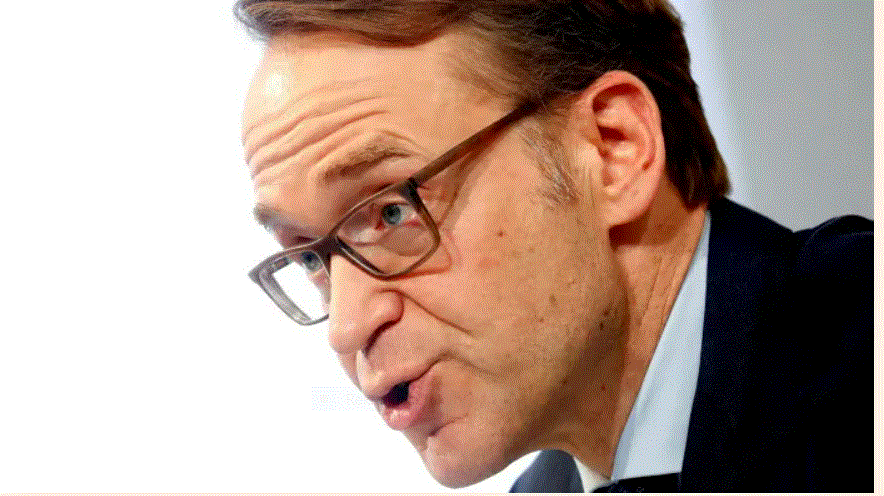Jens Weidmann træder tilbage som chef for den tyske centralbank, Bundesbank. Det sker af personlige grunde, men dog efter ti år på posten. Men ligger der alligevel mere bag, spørger ING. Weidmann er den hårdeste høg i ECB, og han har hele tiden været inflationsbekæmper nr. et og holder fokus på inflatinen og mener, at ECB skal undlade at tage finanspolitiske hensyn. Han har været kritisk over for opkøbspolitikken og den ekstremt lave rente. På ECBs decembermøde, og hans sidste som rådsmedlem, vil han være hovedkraften i at neddrosle ECBs opkøb. Men spørgsmålet er, om der kommer en lige så stærk høg i Bundesbank og dermed i ECB. Mange tvivler.
Bundesbank president Jens Weidmann to step down at year end
This is breaking news. Bundesbank president Jens Weidmann just announced he’ll be stepping down from the German Bundesbank by the end of the year. Getting the ECB to start tapering could be one of his last actions as a member of the Governing Council
The German Bundesbank just announced that President Jens Weidmann will step down by the end of the year. Weidmann had asked German Federal President Frank-Walter Steinmeier to dismiss him from office on 31 December 2021. According to the Bundesbank’s press statement, Weidmann will leave “for personal reasons”. We assume and hope that there are no health or private issues at the basis of this decision but really “only” personal reasons.
Jens Weidmann continues what has almost become a tradition of German central bankers leaving office before the official end of their term. Just think of his two predecessors Axel Weber and Ernst Welteke, or ECB Executive Board members Jürgen Stark, Jörg Asmussen and Sabine Lautenschläger. Admittedly, the reasons for all of their early exits differed and only Weber and Stark left after public dissonance with the ECB’s monetary policy stance.
The next hours and days might reveal whether there are any reasons related to the ECB’s current monetary policy stance and inflation assessment involved in Weidmann’s decision. At the same time, ten years in office as Bundesbank president is not short.
However, the press statement also says that “not to look one-sidedly at deflationary risks, but not to lose sight of prospective inflationary dangers either”. Monetary policy should respect “its narrow mandate and does not get caught in the wake of fiscal policy or the financial markets”. If anyone wants to see any symbolism in Weidmann’s decision against the current monetary policy, this would be a clear hint.
This comes at a crucial time for the ECB. The camp of the hawks is losing an important voice. At a time that increasing inflationary pressure seems to have fueled a more balanced inflation assessment than in the summer. Even if board member Philip Lane yesterday reiterated that the ECB’s forward guidance currently did not really justify financial markets’ speculation about future rate hikes, higher inflation (prospects), herd immunity and an economy returning to pre-crisis levels before the end of the year are creating a strong argument to withdraw the ECB’s emergency stimulus and start reducing asset purchases.
Maybe the decision to do the latter will be Weidmann’s last success as Bundesbank president at the ECB’s December meeting.











